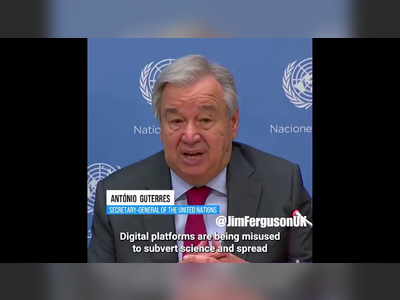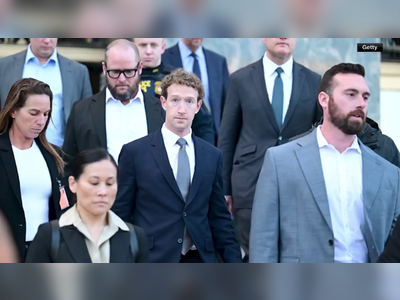Pharmacy Technicians' Strike Threatens Patient Safety Amid Growing Tensions
Legal Challenge Intensifies as Employers Fear for Public Health and Safety Due to Prolonged Apothecary Closures
In a dramatic escalation that underscores mounting discontent in the healthcare sector, the imminent strike by pharmacy technicians could see pharmacies across the nation shuttered for an entire week—a scenario employers warn could endanger patient safety.
The legal proceedings aimed at averting the walkout are set to be heard imminently in Utrecht, potentially reshaping the healthcare landscape as apothecaries brace for upheaval.
The Werkgeversvereniging Zelfstandig Openbare Apothekers (WZOA), representing independent public pharmacists, voices acute concern over the safety of patients during the planned stoppages, slated for next Monday, Tuesday, and Friday.
This strike, orchestrated by unions seeking better pay and working conditions, threatens to disrupt pharmaceutical care, particularly amidst the Christmas holiday period.
Under ordinary circumstances, prescriptions undergo scrutiny by at least two pharmacy staff in adherence to the 'four-eyes principle,' a crucial safeguard against medication errors.
"The strike compels pharmacists to operate single-handedly, thus undermining this safety standard," explains WZOA Chair Karin Beuning.
"The necessity for dual validation is rooted in patient protection, now compromised by industrial action."
As tensions simmer, the KNMP, the pharmaceutical profession's body focused on care quality, labels the extended strike duration as 'utterly irresponsible'.
Jos Lüers, chair of the organization's scientific division for public pharmacies, highlights the severe ramifications of protracted closures—particularly for chronic condition patients reliant on daily medication to avert critical health episodes.
"Immediate care might be handled by emergency pharmacies over a single day," Lüers notes, "but an unprecedented week-long closure poses a far greater threat and leaves vulnerable patients at heightened risk.
Insufficient access to regular medication could swiftly escalate routine care cases to emergency interventions, overwhelming limited emergency resources."
Such a stark outlook is compounded by concerns about the impact on pharmacy professionals striving to serve community needs amidst staffing constraints.
The anticipated spike in demand could prompt increased wait times, possibly inciting patient frustration and aggression—a phenomenon experienced during prior strikes, raising the likelihood of prescription errors due to elevated stress levels.
Conversely, union representatives assert their consideration of patient needs, citing the advance notice intended to allow for proactive medicine stockpiling.
"Typically, strike announcements come just a day in advance.
This time, we've provided almost a week's warning to ensure patients have ample opportunity to secure necessary medications," states CNV spokesperson Manon van Essen.
The labor dispute centers on longstanding issues of stagnating wages and oppressive workloads.
With demands for a minimum 6% pay raise retroactive from July and a boost to a €16 hourly minimum wage, along with measures to alleviate work demands, unions advocate for just recompense and improved work-life conditions.
Employers, constrained by insurance and governmental policies, have proposed a staggered increase—2% from July 1 of the current year, escalating to 5% by the next—argue they offer a fair compromise.
"Given prevailing economic realities, our offer is reasonable," Beuning maintains.
As legal proceedings loom and stakeholders await judicial arbitration, the impending decision could profoundly influence the balance between labor rights and public health imperatives, setting a precedent in navigating such complex industrial disputes.
The legal proceedings aimed at averting the walkout are set to be heard imminently in Utrecht, potentially reshaping the healthcare landscape as apothecaries brace for upheaval.
The Werkgeversvereniging Zelfstandig Openbare Apothekers (WZOA), representing independent public pharmacists, voices acute concern over the safety of patients during the planned stoppages, slated for next Monday, Tuesday, and Friday.
This strike, orchestrated by unions seeking better pay and working conditions, threatens to disrupt pharmaceutical care, particularly amidst the Christmas holiday period.
Under ordinary circumstances, prescriptions undergo scrutiny by at least two pharmacy staff in adherence to the 'four-eyes principle,' a crucial safeguard against medication errors.
"The strike compels pharmacists to operate single-handedly, thus undermining this safety standard," explains WZOA Chair Karin Beuning.
"The necessity for dual validation is rooted in patient protection, now compromised by industrial action."
As tensions simmer, the KNMP, the pharmaceutical profession's body focused on care quality, labels the extended strike duration as 'utterly irresponsible'.
Jos Lüers, chair of the organization's scientific division for public pharmacies, highlights the severe ramifications of protracted closures—particularly for chronic condition patients reliant on daily medication to avert critical health episodes.
"Immediate care might be handled by emergency pharmacies over a single day," Lüers notes, "but an unprecedented week-long closure poses a far greater threat and leaves vulnerable patients at heightened risk.
Insufficient access to regular medication could swiftly escalate routine care cases to emergency interventions, overwhelming limited emergency resources."
Such a stark outlook is compounded by concerns about the impact on pharmacy professionals striving to serve community needs amidst staffing constraints.
The anticipated spike in demand could prompt increased wait times, possibly inciting patient frustration and aggression—a phenomenon experienced during prior strikes, raising the likelihood of prescription errors due to elevated stress levels.
Conversely, union representatives assert their consideration of patient needs, citing the advance notice intended to allow for proactive medicine stockpiling.
"Typically, strike announcements come just a day in advance.
This time, we've provided almost a week's warning to ensure patients have ample opportunity to secure necessary medications," states CNV spokesperson Manon van Essen.
The labor dispute centers on longstanding issues of stagnating wages and oppressive workloads.
With demands for a minimum 6% pay raise retroactive from July and a boost to a €16 hourly minimum wage, along with measures to alleviate work demands, unions advocate for just recompense and improved work-life conditions.
Employers, constrained by insurance and governmental policies, have proposed a staggered increase—2% from July 1 of the current year, escalating to 5% by the next—argue they offer a fair compromise.
"Given prevailing economic realities, our offer is reasonable," Beuning maintains.
As legal proceedings loom and stakeholders await judicial arbitration, the impending decision could profoundly influence the balance between labor rights and public health imperatives, setting a precedent in navigating such complex industrial disputes.











